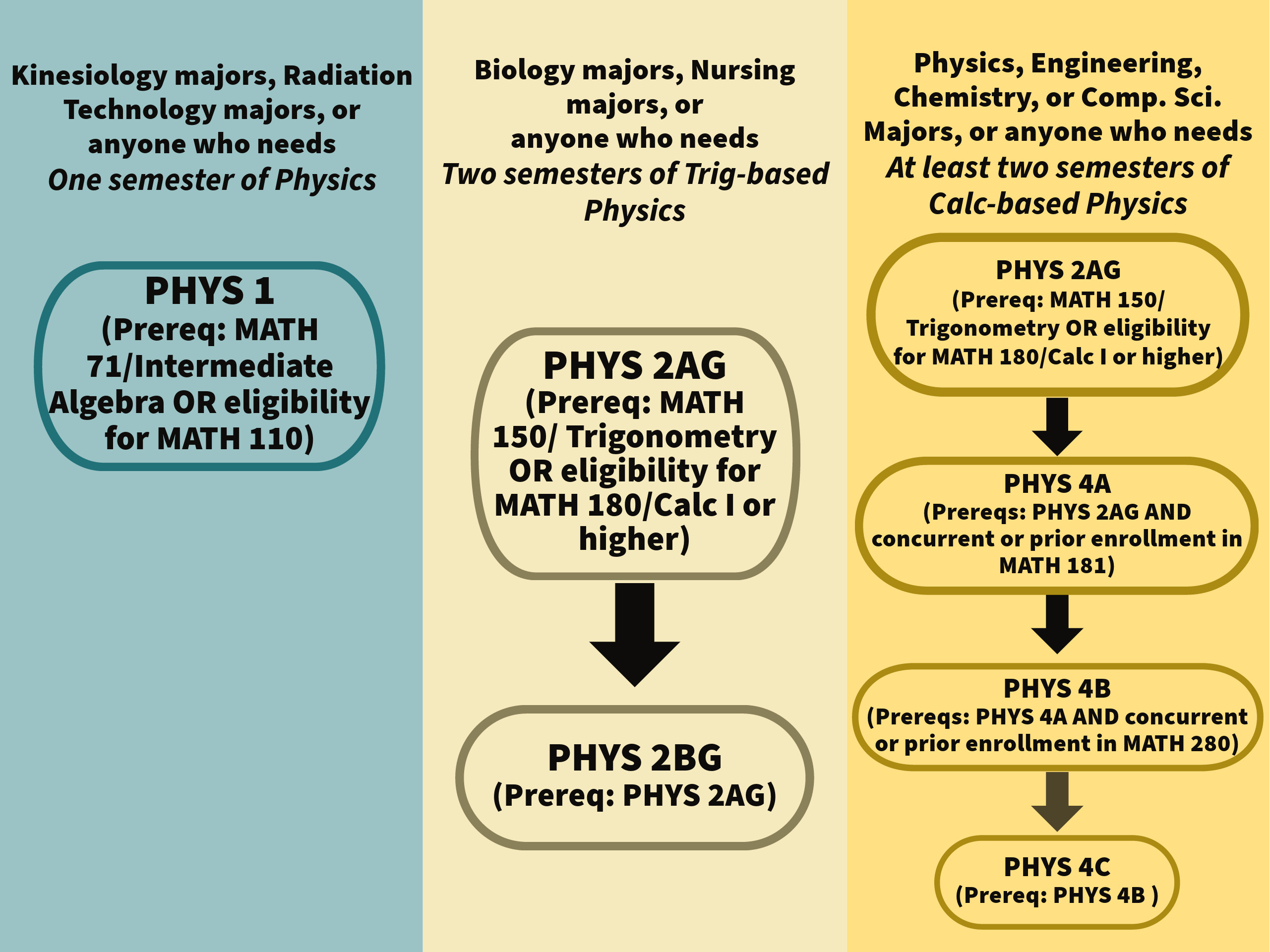Physics Courses and Programs
Course Offerings
Typical Sequences
Physics Transfer
These are the courses typically taken by a student intending to transfer to a four year university in their junior year as a physics major:
| Summer/High School | Fall Year 1 | Spring Year 1 | Fall Year 2 | Spring Year 2 |
|---|---|---|---|---|
| MATH 180 (Calculus I) | Math 181 (Calculus II) | Math 280 (Calculus III) | ENGR 285 or MATH 285 (Diff. Eq. and Lin. Alg.) | |
| Math 150 | PHYS 2AG | PHYS 4A | PHYS 4B | PHYS 4C |
| ENGL 68 | ENGL 1A | ENGR 1C | CHEM 50 | CSCI or CHEM or ENGR course |
| HIST 7 | SPCH 1A | PHYS 99 or ENGR course or Gen. Ed. |
PHYS 99 or ENGR course or Gen. Ed. |
AS Degree Programs
None


